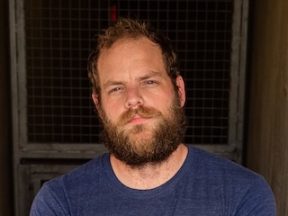Accessibility is important to Beardbrand, my company. We respect consumers with disabilities and try to serve them. Still, we were recently sued for alleged violations of the Americans with Disabilities Act.
Stunned, I turned to a fellow entrepreneur whose company has dealt with frivolous lawsuits. I first interviewed Joel Runyon for this podcast in May 2022 when we discussed Impossible, his nutritional performance brand. In our recent interview, he shared his experience of getting sued.
The entire audio of that conversation is embedded below. The transcript is edited for length and clarity.
Eric Bandholz: I need your advice on lawsuits.
Joel Runyon: Lawsuits seem to find us; we don’t find them. Our company is called Impossible. We’re a direct-to-consumer brand selling nutritional drinks and supplements.
Many folks who file lawsuits are looking to shake you down for money. Entrepreneurs launch businesses because they want to change the world or create something. Someone should do something about frivolous lawsuits. Some of these suits self-perpetuate because plaintiffs know they can harass people until they get whatever amount of money they want. But most entrepreneurs want to do the right thing on the principle.
Bandholz: The person suing Beardbrand allegedly tried to buy our Sea Salt Spray, and she’s suing 50 other companies for what she says are violations of the Americans with Disabilities Act.
Runyon: If you want to stop her, there are different ways to scale it out. Initially, you have your lawsuit that you’re concerned about, and you’d like that to be over. Then you have this person going out and suing 50 people. She’s not likely the only person doing that. It’s a whole industry. It depends on what the goal of fighting it would be.
If you want to resolve the acute issue of your lawsuit, figure out what that payment is and have it handled. If you’re contesting this person and what she’s doing — batch suing people — that’s another thing.
Still, because it’s an ADA thing, plaintiffs can assert, “We have issues with many retailers.” They could make the argument that they’re just trying to be helpful.
Lawsuits can take years. You could win a case that is then appealed. That could add another year. So the time commitment is another thing to consider. Most entrepreneurs settle the suit and return to their business. They didn’t sign up to do lawsuits and spend time in court.
Occasionally a business will dispute the allegations and win. Cloudflare did that. It was sued by copyright trolls or similar. Cloudflare fought the charges and eventually won the case. It received much press attention because they were willing to fight for something they believed in. But it was also clear that the plaintiffs were patent trolls. That is what they do. It’s their business.
Bandholz: Finding a lawyer is just as important as the facts.
Runyon: The first thing I tell people when dealing with lawyers is to get a second opinion. You realize quickly that lawyers are an industry. One out of 10 is amazing, six out of 10 are okay, and some are bad. You think everybody should be a 10 out of 10. That’s just not the case. Lawyers have specialties. Make sure you’re niching down on whatever issue you’re dealing with, and talk to a bunch of people.
Most lawyers will give you a free 30-minute introductory call and offer feedback. If you talk to 10 people, you’ll get a consensus of what the middle range thinks. They’ll explain probable outcomes and give you averages. You might find some who have dealt explicitly with an exact case like yours and explain how they handled it. That is usually a good sign if they can speak to specifics, especially with other stuff they’ve done. You have to educate yourself. Take the five hours of phone calls as education.
Sometimes you can countersue. I’m aware of instances where someone went to court to try to take a domain name, and then because they didn’t have a chance, it was an abuse of the law, they could be countersued for damages and infringements. Only the top 10% of lawyers will file countersuits. Most are just going to list your range of options. But 10% set new case laws and create new precedents. Those guys are harder to find, and they’re expensive.
Bandholz: It would be nice to build a blueprint for how to fight these and not settle. That’s what I want to do.
Runyon: That would be an interesting template. It seems many accusers have a standard operating procedure for filing lawsuits. We need one for quickly fighting these suits. Even if you’re self-representing or having a lawyer, it would be interesting because you’re neutralizing their main weapon, which is the attorney fees you’ll have to pay.
Bandholz: Where can people follow you?
Runyon: Buy our products at Impossible.co, or learn more about what we do at Impossiblehq.com. Check me out at @joelrunyon on Twitter. I’m also on Instagram and LinkedIn.





